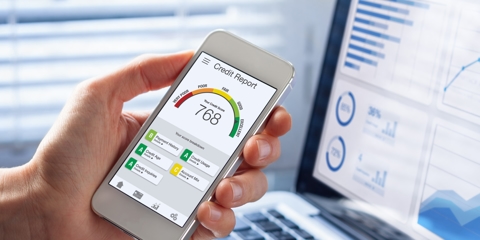If you feel like you’re drowning in debts, you’ve probably already started researching your options for bankruptcy in Georgia. A quick Google search will give you some information about your options, but you may end up feeling even more confused and lost than you did when you started. You’ll find pages and pages of info on Chapter 7, Chapter 13, and debt resolution. But which one is right for you? How can you tell the difference? And what should you do next?
Let’s break it down. Chapter 7 bankruptcy and Chapter 13 bankruptcy are two types of bankruptcy available to individuals in Georgia (and across the U.S.), but they aren’t interchangeable. Let’s start by walking through each type of bankruptcy and a few key differences.
Atlanta Bankruptcy Attorneys | What is Chapter 7 Bankruptcy?
For people dealing with a lot of unsecured debts in Georgia, Chapter 7 bankruptcy is often the best option. Basically, Chapter 7 bankruptcy will wipe out most or all of your unsecured debts, and you won’t have to repay them. This include, but are not limited to, things like:
- Credit card debt
- Medical bills
- Utility bills
- Most auto accident claims (Chapter 7 will not discharge claims from a DUI)
- Business debts
- Most attorney fees (Chapter 7 will not discharge child support or alimony debts)
Atlanta Bankruptcy Attorneys | What is Chapter 13 Bankruptcy?
Chapter 13 bankruptcy, on the other hand, won’t actually wipe out your debts. Instead, under Chapter 13, you’ll work out a repayment plan for those debts. At first, you might think that you obviously would want to choose the bankruptcy option that lets you start with a clean slate, but that’s not always the best option. And sometimes it’s not even a possibility.
Chapter 13 bankruptcy is designed for people who have enough income that they don’t qualify for Chapter 7. It’s also designed for people with a lot of secured debts. For example, if you’re in debt and facing foreclosure, Chapter 13 could help you keep your home while paying back a small portion of your loans each month.
Now, there is some overlap between the debts discharged by Chapter 7 and Chapter 13. Let’s take a look at the difference between the two when it comes to some of these debts.
Bankruptcy and Your Car or Home
If you’re delinquent on your vehicle or home loan, you will likely want to opt for Chapter 13. Chapter 13 allows you to catch up on your past due payments while simultaneously making payments that are coming due. Chapter 13 will give you a path to get current on your past due debts without losing your home or your vehicle.
Bankruptcy and Credit Card Debts
If you’re experiencing reduced income or you otherwise don’t earn enough income to pay on unsecured debts, such as credit cards, Chapter 7 bankruptcy can help. Bankruptcy won’t discharge some debts, such as child support or alimony. Likewise, if you file for Chapter 13 bankruptcy to help with these debts, you will repay a portion if not all of these debts through your repayment plan.
If you go into bankruptcy believing that all debts will be discharged, you could be in for a rude awakening. That’s why it’s so important to talk with an Atlanta bankruptcy attorney before you make any big decisions about filing for bankruptcy.
We hope this information has given you a clearer idea of the difference between Chapter 7 and Chapter 13 bankruptcy in Georgia. If you have more questions about the best steps to get out from under debt and back on track, we’re here for you. For a free consultation with an Atlanta bankruptcy attorney, call us at Holston & Huntley, today at (404) 620-3337.





